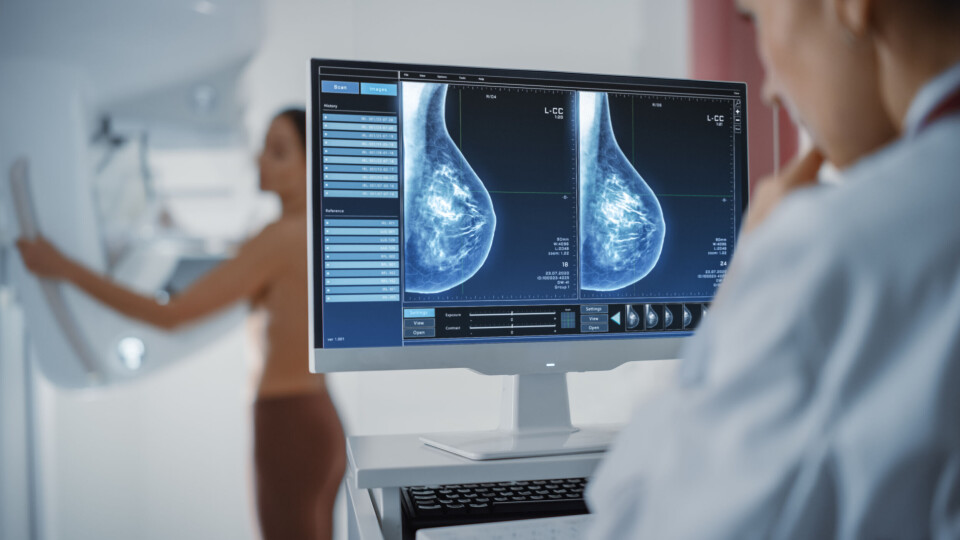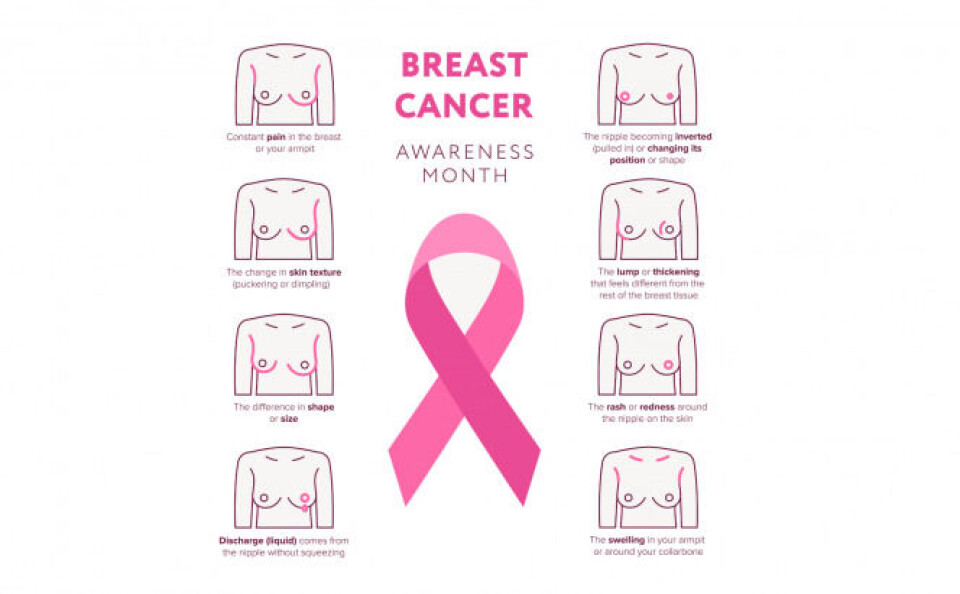-
Help available for struggling self-employed workers in France
Three specific schemes launched for individuals running their own businesses who have run into difficulty
-
Farmer protests in France: more blockades as ‘emergency law’ announced
Local union branches are protesting nationwide but unions are divided on next steps
-
Ryanair reopens Tours-London route for summer 2026
All four of the Irish airline’s summer services have returned to the airport
Breast cancer: Who can get free screenings in France?
We recap the rules for free screenings and answer some of the most common questions about the mammogram and screening process for this Pink October

France has issued new reminders about who is eligible for free breast cancer screenings, and how to get them as part of Pink October, a month in which organisations aim to raise awareness of the disease.
Pink October (Octobre Rose) is an annual month-long campaign to raise awareness of the signs of the disease, how to spot them, and how to get regular screenings at any time of year to improve early detection rates.
French government website Service-Public.fr and l’Institut National du Cancer (INCa) have put together a new set of recommendations and reminders for anyone wondering what help is available.
Breast cancer is the most common cancer among women in France, and 80% of these are found in people aged 50 and over.
However, if it is caught early, its recovery rate is 90%, and regular screening improves these chances.
At the same time, it is important to be aware of any changes in your breasts. This is because cancer can occur before the next mammogram, or before you have had your first check.
Read also: France to offer free medical check-ups at age 25, 45 and 65
Possible signs of breast cancer

Credit: Andrii Bezvershenko / Shutterstock
The following signs do not necessarily mean that you have cancer, but you should tell your doctor promptly if you notice them.
-
The appearance of a lump in the breast or under an arm (armpit)
-
A change in the skin: shrinkage, redness, swelling, or an orange peel appearance;
-
A change in the nipple or areola (the area around the nipple): shrinkage, change in colour, oozing or discharge;
-
Changes in the shape of your breasts.
What free screening is available?
-
Free screening from age 50 to 74 (if you are not in an at-risk category, and do not have any symptoms)
-
You should receive a letter at home, inviting you to a screening
-
You can choose from a list of radiologists on the list, or choose your own
What does the screening involve?
-
The screening consists of a clinical examination of your breasts by the radiologist
-
This is followed by a mammogram
-
The mammogram will be read by your radiologist and a second radiologist, to confirm the results
If you are aged 74 or over, free screening can only be done after a consultation with your GP.
Systematic screening is not recommended for people aged under 50 who do not have symptoms or a high-risk factor.
The INCa website page also lists answers to the most common questions (in French). These include:
I am eligible but have not received my invitation, who should I contact?
You can contact the Centre régional de coordination des dépistages des cancers (CRCDC). This organises the screening programme locally and regionally and is in charge of sending invitation letters.
I have had breast cancer, will I receive an invitation?
If you have had breast cancer, you will have a specific follow-up plan and therefore no longer come under the screening programme. Feel free to discuss this with your GP, gynaecologist or midwife during your next consultation.
I have breast implants, is this a problem?
No, but the mammogram will take photos that specifically take your implants into account.
Does mammography detect all the cancers that might be present?
Some cancers, especially small ones, may not be detected by mammography: however, repeating this examination every two years can improve detection.
Does the mammogram hurt?
It can certainly feel unpleasant, and for some, may be a little painful. However, the pressure is needed to guarantee the quality of the images by spreading out the breast as much as possible. It only lasts a few seconds and is not risky for the breast.
However, if you are afraid, or you experience severe pain, you can always speak to the radiologist, who is trained to help.
How am I informed of the results?
The radiologist will give you an initial result immediately after the mammogram and the clinical examination.
The final results will be available from your radiologist within two weeks, and even images considered to be normal are sent to a second radiologist for a second reading.
Your final results will also be sent to the health professional of your choice (GP, gynaecologist or midwife) if you have given their contact details to the radiologist or in the information sheet filled in on arrival.
What if an abnormality is detected?
The detection of an abnormality, at the first or second reading, happens to around 90 women out of 1,000.
In most cases, it is not cancer but a benign (cyst) or a benign abnormality. Short-term follow-up will be offered in this case. An inconclusive result or suspicious abnormality will require further investigation, and in most cases the conclusion is that there is no cancer present.
However, in seven out of 1,000 cases, cancer may be diagnosed. Each of them will then be referred by their GP to a multidisciplinary cancer specialist team.
What if I decide not to be screened?
You can discuss this with your doctor.
However, the (INCa) advises that from the age of 50, the risk of breast cancer increases dramatically.
If you develop breast cancer and have not been regularly screened, it will likely be diagnosed at a more advanced stage. This will reduce your chances of recovery and have a greater impact on your quality of life.
Read more: Older women risk lives by missing breast cancer checks
Treatment of late-stage cancer can itself be dangerous, and have greater after-effects.
Whatever your decision, here are some more tips from the INCa:
-
Have a clinical examination of your breasts carried out by a doctor, general practitioner or gynaecologist, and if necessary by a midwife at least once a year;
-
Check your breasts regularly: any unusual changes should be reported to your doctor.
Related articles
Getting a breast cancer scan in France: FAQs























